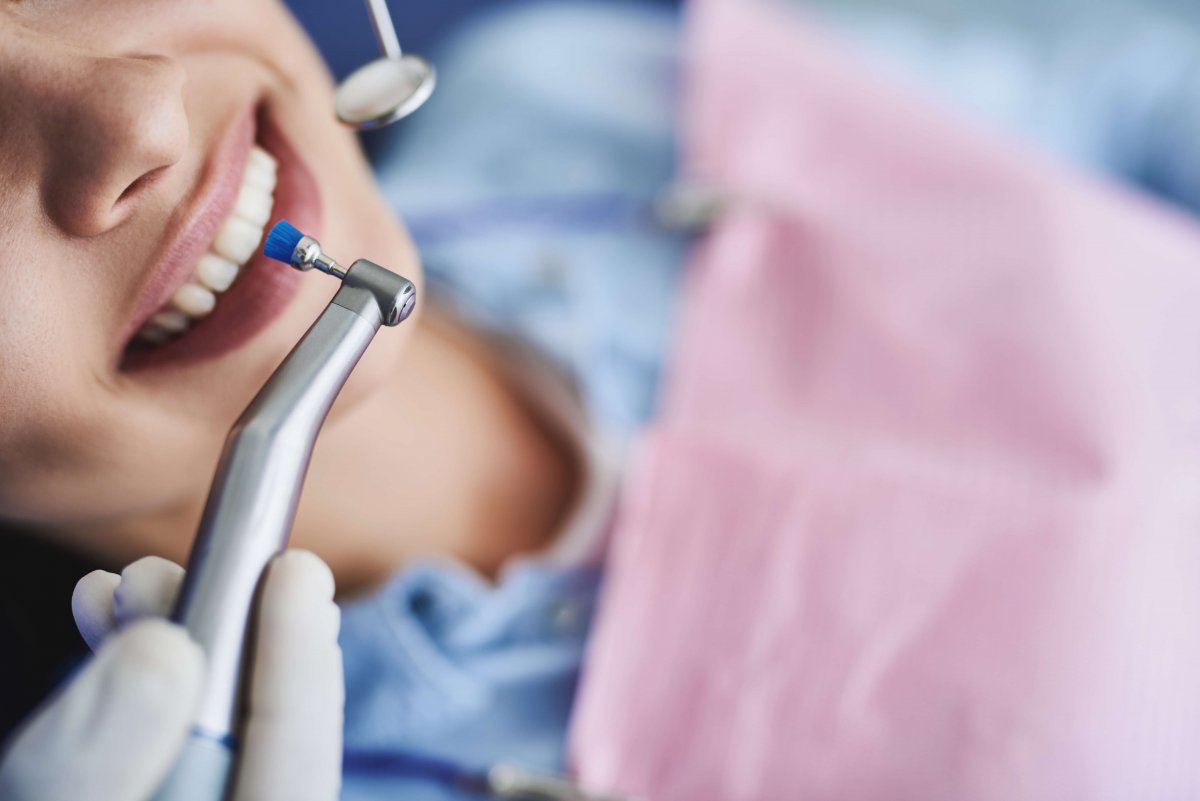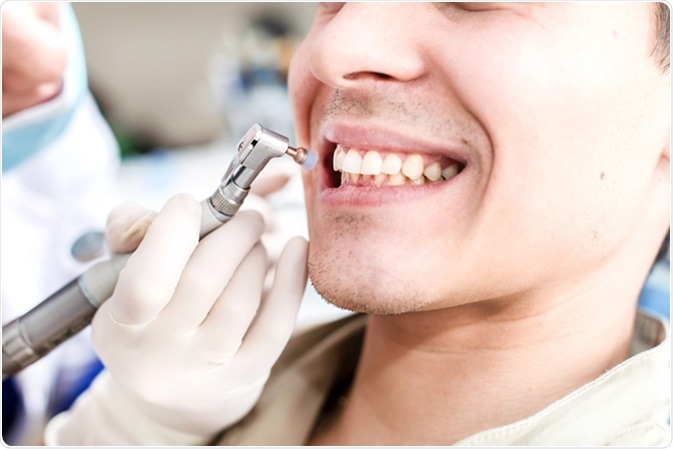
Teeth. We’ve all got ‘em. Well, most of us do. We could, at the very least, say that everyone has had teeth at some point in their life. If you’re reading this article, odds are you’ve even got a few teeth in that skull of yours.
There are some challenges that come with having teeth. You’ve got to take good care of them and make sure that you keep them clean so you don’t run into any major issues. Generally, all you need to do is brush and floss, but occasionally you also need to see a dentist.
In fact, it’s very important to make sure that you have a dentist teeth cleaning done if you want to make sure that your oral hygiene is at the highest point that it could possibly be. This is definitely something that a lot of people neglect.
Even people that don’t entirely avoid getting cleanings from the dentist don’t get them as often as they really should. That’s why we wrote this article. With a bit of help, you can be well on your way to having some of the best oral hygiene out of anyone you know.
Table of Contents
What’s The Difference Between a Home Cleaning and a Cleaning at the Dentist?
One of the biggest reasons why people avoid getting cleanings done at the dentist is that they assume that it’s not that important. If you brush three times a day and floss once or twice a day, odds are that your teeth are already pretty healthy.
When you do oral cleaning at home, there are probably a handful of things that you do at least semi-regularly. For instance:
- Brushing your teeth at least twice a day.
- Flossing at least once a day.
- Using a mouthwash daily.
- Implementing whitening strips occasionally.
- Use a tongue scraper weekly.
All of these things are fantastic. They can help stop the buildup of plaque and make your mouth that much healthier. The less plaque and buildup in your mouth, the less likely you are to develop things like cavities.
All of this is great, but you still need to see a dentist for a cleaning. They’re able to do things that you can’t do for yourself at home. Think of it as Spring cleaning. Yeah, you probably keep your house clean throughout the year, but when Spring comes around it’s time to deep clean.
Your daily oral care is a lot like your daily home care, funnily enough. You clean up the clutter, take out the trash, and make sure that things aren’t building up and causing issues or even damage. Which is all very important, a clean home is a happy home.
But going to the dentist for a cleaning is like when you go up into the attic and throw out all of the stuff you don’t use anyone, or when you clean underneath the grill on your stove. It’s a much higher level of maintenance, but can keep things running smoother for the rest of the year.
There are a few steps to the cleaning that a dentist gives you:
An exam.
- Before anything, the dentist will examine your mouth. This includes both a visual inspection, the use of tools, and usually x-rays. This is important for making sure there’s nothing wrong with your mouth.
Plaque and tartar removal.
- You do remove a lot of plaque and tartar at home, but the dentist is able to get what you miss with laser precision. They will use a pick and mirror to ensure that you don’t have years worth of leftover plaque on your teeth.
The use of gritty toothpaste.
- Dentists have very powerful electric toothbrushes that are far more powerful than what you can get on the market, and they use those in tandem with very gritty toothpaste. This allows them to get the last of the plaque and tartar out of your mouth after the previous step that we listed.
Deep flossing.
- After the toothbrushing, your dentist will floss your teeth. They do use normal floss for this, but because they’re trained they can make sure to floss all of the spots that could potentially cause you problems properly to mitigate the risk.
Apply a fluoride treatment.
- This final step is a special kind of mouthwash that is designed to protect you from cavities for months after your cleaning. This also helps to remove the last bits of residue from the previous steps in this process.
This deep cleaning will leave your mouth feeling brand new, and it will also keep you protected from getting cavities and other conditions. If you haven’t been to a dentist in years or even if it’s your first time at a dentist, there’s a good chance that they’ll want to give you a cleaning before anything.

How Often Should You See a Dentist for a Cleaning
Now that we understand why it’s important to see a dentist to get deep cleanings, let’s figure out what dentists say about the frequency of these visits. The frequency is important if you want to keep your teeth as healthy as possible.
This is one of those things that a lot of people get confused about. It’s hard to know how often you should go to the dentist to get your teeth cleaned, especially if you don’t go to the dentist very often.
There is a range of times that you can pick from, but keep in mind that not all of them are as good for your oral health. That being said, the absolute least often you should go see a dentist to get your teeth cleaned is once a year.
Most dentists will say that you should actually go twice a year, once every six months, because that will allow them enough of a chance to keep your mouth clean most of the time. That’s important for avoiding oral diseases that can cause you an incredible amount of pain and discomfort.
If you want to go above and beyond and get an A++ in oral hygiene, you should see a dentist for a cleaning 4 times a year, or once every 3 months. This will allow the dentist to keep your mouth fully clean all the time and give you the highest protection against diseases and infections.
In fact, people that already have serious dental issues are almost always immediately recommended to come in for quarterly cleanings from a dentist in order to lower the risk of the patient getting any serious complications from their oral conditions as much as possible.
What to do if You Haven’t Been to a Dentist in a While
So, you haven’t been to the dentist in too long and now you’re wondering what you should do. It makes sense, your teeth are important, and knowing how to catch up on your oral care can save you a lot of trouble.
If you haven’t been to a dentist in a while, you’re going to want to make sure that you’re brushing and flossing at a minimum. This will ensure that your teeth are getting the kind of cleaning that they need on a daily basis.
If you don’t already brush and floss, now is a fantastic time to start. You can even get everything you need from a 24-hour pharmacy, it’s very convenient. Your dentist will be able to see the years of neglect, but that’s ok. They’ll still happily clean your teeth for you.
After that, even if you’ve only been brushing for a day, call a dentist to schedule an appointment. Some dentists will have to book you months out and others will be able to get you in within a few days, it really depends on the practice and how busy they are.
Then just go to your appointment and sit through the session. It might be a little uncomfortable, but you’ll feel better once you’re all done with it. It doesn’t take too long to do, but the effects can be very impactful and will definitely leave an impression that lasts a very long time.
Once you’ve had your teeth cleaned, make sure to schedule your next appointment six months out. That will allow you the chance to be on top of the ball for next time, and by then you’ll be brushing your teeth every day like a certified professional.
Getting Your Teeth in the Best Possible Shape
Everyone wants one of those smiles that can light up an entire room. Pearly whites that seem to shine even when there’s no other source of light in the room. Or, maybe you just enjoy being able to eat normally without any pain.
Regardless of which camp you fall into, making sure that you’re taking your oral health seriously will help you out a lot in the long run, and can definitely help you reach your goal of having beautiful shiny teeth or eating without excruciating pain. We use our teeth every day, both to eat and to communicate, so taking care of them is important.

